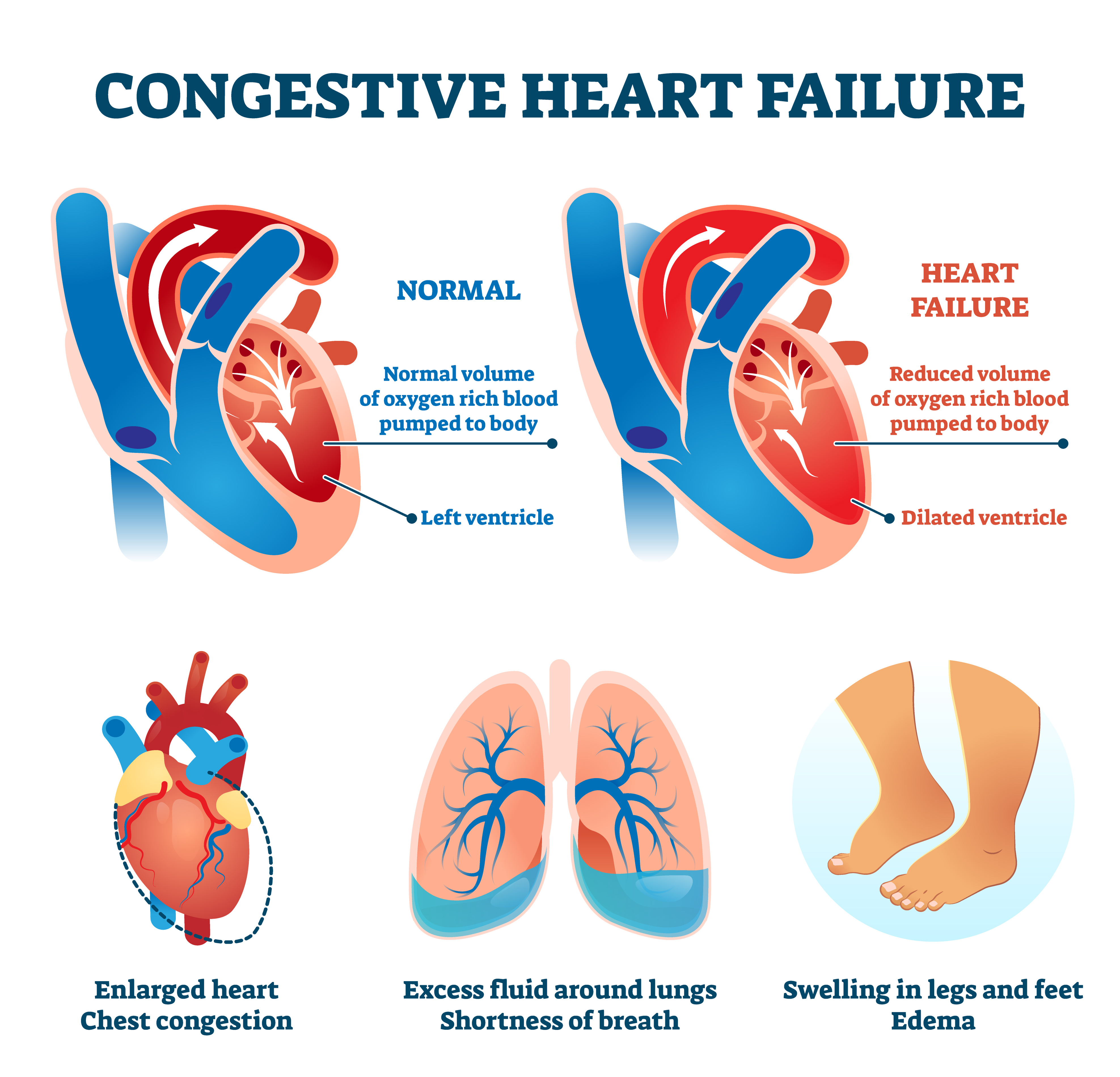Jacklyn Karli, DNP at Prairie Lakes Cardiology answered some commonly asked questions about heart failure and the Heart Failure Program at Prairie Lakes Healthcare System.
What is the Heart Failure Program at Prairie Lakes?
Prairie Lakes offers both an inpatient and outpatient heart failure program, where individuals will receive specialized care in the treatment of their heart failure by an Interventional Cardiologist, Heart Failure Certified Nurse Practitioner, and other multidisciplinary team members such as Cardiac Rehab, Dietary, Pharmacy, Social Work, and Nursing staff.
The goals of the heart failure program at Prairie Lakes are to provide a personalized treatment plan for patients and families in our region that focus on evidence-based care, controlling heart failure symptoms and minimizing exacerbations, reducing hospitalizations, and improving patient quality of life.
What is heart failure? 
Heart failure is a chronic and progressive disease that means your heart isn't pumping well and is unable to provide the body everything it needs. Over 6 million American's are currently living with heart failure.
There are two types of heart failure: 1. heart failure with reduced ejection fraction and 2. heart failure with preserved ejection fraction. The type of heart failure you have is classified by the pumping function of your heart. It is important to determine which type of heart failure you have as your treatment plan and medications will be tailored to your diagnosis.
What are some common causes of heart failure?
Two common causes of heart failure are hypertension (high blood pressure) and heart disease, which could include a heart attack, stent, or having coronary artery bypass surgery. Other causes include cardiomyopathy (weak heart muscle), congenital heart disease, cardiac arrhythmias (such as atrial fibrillation), valvular heart disease (stiff or leaky heart valves), diabetes, kidney disease, obesity, aging, and certain medications can all cause heart failure.
What are some of the first symptoms of heart failure?
Individuals with heart failure may have no symptoms at all or may have severe symptoms. Symptoms can come and go. Signs that you should be alerted to include shortness of breath, having to sleep upright, a persistent cough, swelling in your legs, ankles, or abdomen, rapid weight gain, confusion, fatigue, and lack of appetite.
What are some things I can do to reduce the risk of heart failure?
You can take control of your heart failure by following your healthcare providers advice, take your medications as prescribed, be aware of your symptoms, and when to seek help. Individuals should weigh themselves daily and watch for a sudden weight gain, follow a heart healthy diet, and minimize your sodium (salt) intake, be physically active, get adequate rest, and quit smoking, if you smoke.
Learn more about services offered by Prairie Lakes Cardiology
